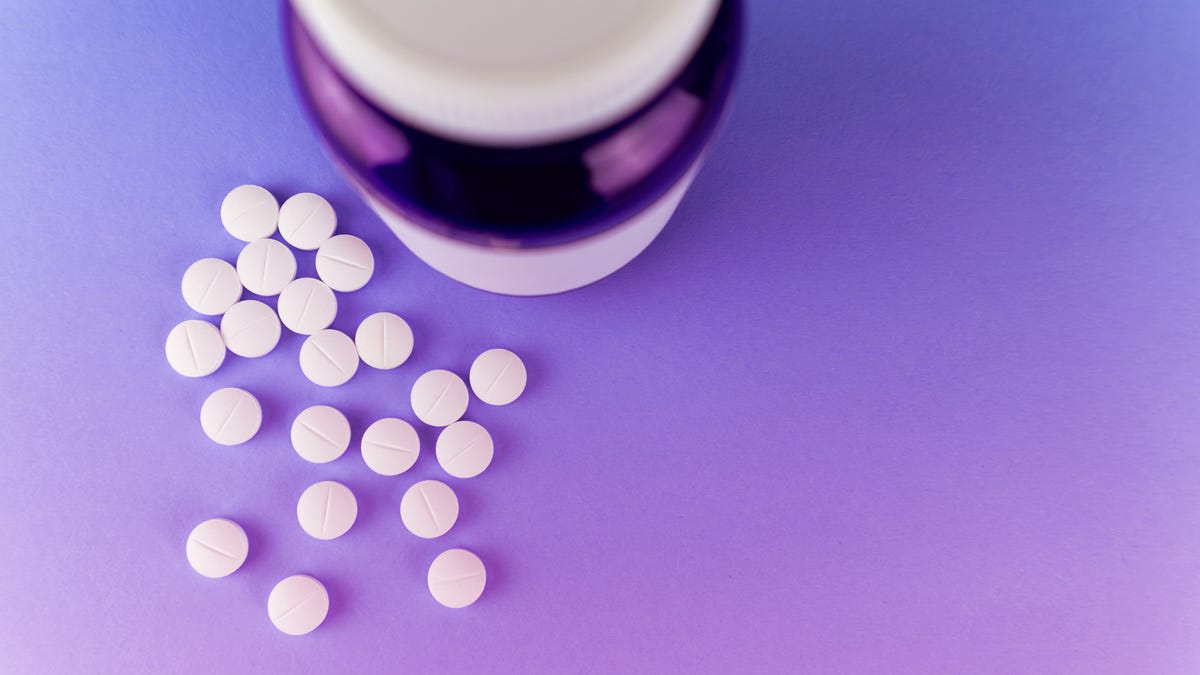
Sleep is essential to all aspects of our well-being, from our mood and our brain functions to our immune system, heart health and more. Despite how important a good night’s sleep is, many Americans struggle with insomnia. If you’ve tried nighttime yoga, melatonin and every other sleep remedy in the book, and you still can’t seem to knock out at night, there’s a supplement you might want to try.
Enter gamma-aminobutyric acid, or GABA.
It’s an amino acid, naturally found in the body, that promotes a calming effect. GABA is often taken as a dietary supplement, but it has a track record showing that it may be a good sleep aid alternative to melatonin. It affects only the early sleep stages and leaves you feeling more awake in the morning as a result (some people say popular sleep supplements like melatonin make them groggy). Although there’s limited research, the small studies performed yield positive results that show GABA may be worth a try if you’re unable to fall asleep.
Here’s what we know about GABA, tips on taking it and why it might be a viable sleep aid to consider.
For more help getting quality rest, try these seven natural sleep aids for insomnia, and here’s how to create the perfect environment for sleep.
What is GABA?
GABA is a neurotransmitter naturally found in the brain and even in some foods like tomatoes and soybeans. It’s an inhibitory neurotransmitter that blocks chemical signals in the central nervous system and reduces brain activity. GABA can help promote calmness in the body and helps regulate nerve cell hyperactivity when feeling fearful, anxious or stressed.
It’s sold without a prescription as a dietary supplement, but GABA’s effects may also benefit those who struggle to fall asleep.
Taking GABA for sleep
Taken alone or with other natural sleep aids, GABA supplements help address anxiety, stress and an overactive brain, three main offenders that make it difficult to fall asleep. Its calming effect puts the mind in a relaxed state, so you’re in the right headspace to drift off to sleep.
Low GABA levels have actually been linked to sleep deprivation, as one study found participants with insomnia had 30% lower levels of GABA in their systems. Another small-scale study by Frontiers in Neuroscience involving middle-aged adults found that taking 300 mg of GABA before bed for at least a week can reduce sleep latency (the amount of time it takes to fall asleep).
There’s no solid research showing GABA helps sleep efficiency (quality of sleep and slow wave sleep), but the study’s results showed it may promote sleepiness as it affects early sleep stages. Another benefit is that it won’t leave you feeling drowsy the following morning like other over-the-counter medications such as ZzzQuil or prescription sleep medications.
Tips for taking GABA to aid sleep
1. GABA can be taken as a supplement or powder in your food.
2. Take GABA 30 to 60 minutes before bed for best results (as shown by studies).
3. Follow the dosage instructions and track the amount and how often you take GABA.
4. Use a sleep journal to document your sleep quality so you can identify patterns and possible side effects while tracking GABA’s effectiveness.
5. GABA is naturally found in fermented foods like kimchi, sourdough, sake and mulberry beer.
6. Always talk to your doctor before taking GABA or any new supplements.
Is it safe to take GABA every night?
According to the Sleep Foundation, there are no serious side effects when taking GABA in small doses from sleep or dietary supplements. However, some consumers have reported feeling abdominal pain or headaches. High levels of GABA in the brain are linked to daytime drowsiness, and a small number of people report drowsiness after taking GABA.
As you should with any new supplement, consult your doctor before taking GABA, especially when taken in combination with other medications or prescriptions.
People at a higher risk of having a negative reaction to GABA include:
- Pregnant women
- Individuals under 18 years old
- People who take prescriptions for high blood pressure
- People who take antiseizure medications
Other benefits of GABA: Stress and anxiety relief
While research is still limited, more data supporting GABA as a stress and anxiety reliever continues to emerge. However, relieving anxiety and stress before bed isn’t to be taken lightly, as it can significantly impact sleep latency and overall sleep quality.
